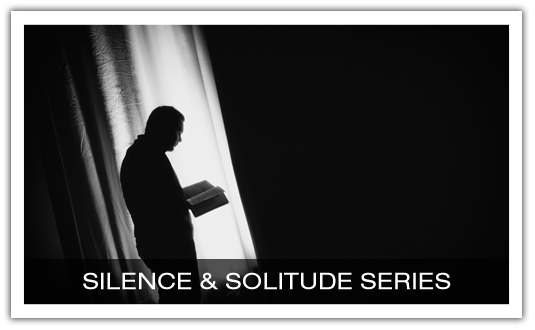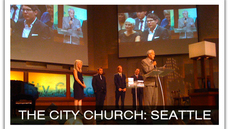
Understanding Silence and Solitude
Silence and solitude is fasting from people and noise for a prescribed time to connect with God and replenish the soul. The opposite of solitude is isolation, where someone is burned out and goes into survival mode by disappearing. Solitude is godly, isolation is deadly, and if we don’t enjoy the former we’ll wind up pursuing the latter. Despite the constant pressures upon his time from family, friends, and fans, Jesus’ own life was marked by ongoing times of solitude. The following verses speak of how Jesus often practiced the spiritual discipline of solitude:
- "And after he had dismissed the crowds, he went up on the mountain by himself to pray. When evening came, he was there alone." (Matt. 14:23)
- "And he said to them, ‘Come away by yourselves to a desolate place and rest a while.’ For many were coming and going, and they had no leisure even to eat." (Mark 6:31)
- "And when it was day, he departed and went into a desolate place." (Luke 4:42)
- "But he would withdraw to desolate places and pray." (Luke 5:16)
Furthermore, as we study Scripture we see that Jesus used solitude for a multitude of purposes. Following his baptism, Jesus spent forty days in solitude preparing for his public ministry (Matt. 4:1–11). After his cousin, John the Baptizer, was beheaded, Jesus spent time alone to mourn (Matt. 14:12–13). Jesus also used times of solitude as occasions for intense and focused prayer (Matt. 14:23; Mark 1:35; Luke 5:16). Jesus specifically used solitude as an opportunity to pray and seek the Father’s will before choosing the twelve disciples (Luke 6:12). In addition, Jesus used solitude to rest after a hard day of work (Mark 6:31). Finally, knowing he was soon to be crucified, Jesus spent time alone in the Garden of Gethsemane, coming to grips with the painful obedience that was required of him (Mark 26:36–46). Other biblical figures also used solitude for a litany of purposes. Moses spent time alone on the mountain with God in order to receive a word from God, namely the Ten Commandments (Exodus 19–20). Isaiah was both saved and sustained by God through his times of solitude with the Lord (Isa. 30:15). In Psalm 62:1–2, 5 David says that in solitude God calmed his fears and encouraged his soul. Paul as well spent some three years in varying degrees of solitude being prepared by the Lord for ministry, according to Galatians 1:17–19. Clearly, time alone with God serves innumerable good purposes in our lives. Therefore, to help you consider how to enjoy purposeful times of solitude, I would encourage the following. One, you may need to simply schedule a day of solitude to ensure that this is a regular part of your spiritual life. I do this at least one day a month and find it to be the most important and refreshing part of my life; it enables me to function in the other areas of my life because it helps me remain continually connected to Jesus. Two, find a place where you like to go. This may mean that you spend a day in God’s creation hiking or simply resting. Three, if you are a parent, this may mean that you have to get up early or stay up late to get some time to yourself at home. There are many things you can do during your periods of solitude, including: 1. Nothing 2. Meditate on a short section of Scripture 3. Rest 4. Read long sections of Scripture 5. Pray, including a prayer-walk/hike/bike 6. Read a good book 7. Journal












